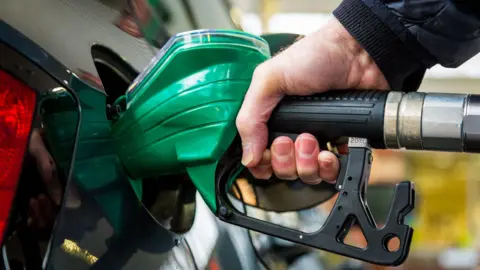Petrol prices in Nigeria could rise to ₦1,000 per litre this week as global crude oil prices approach $80 per barrel. The spike follows rising tensions in the Middle East after coordinated US-Israeli airstrikes hit key Iranian nuclear sites in what Washington described as a “preemptive defensive strike.” Iran, a major oil producer and OPEC member, has vowed to retaliate.
The Iranian parliament has moved to shut down the Strait of Hormuz, a critical route for nearly 20% of the world’s oil supply, further unsettling the global oil market. As of Sunday, Nigeria’s Bonny Light crude traded at $78.62 per barrel, while other key grades, Brass River and Qua Iboe, hovered around $79.
Domestically, marketers say the rising cost of crude oil and unstable foreign exchange rates are pushing up fuel prices. The Dangote refinery raised its price from ₦825 to ₦880 per litre on Friday, prompting filling stations like MRS Oil to adjust pump prices to between ₦925 and ₦960 in various parts of the country.
According to Olatide Jeremiah, CEO of PetroleumPrice.ng, if crude hits $80, private depots could raise prices to ₦1,000 per litre. He added that recent price jumps were largely due to a brief halt in Dangote’s supply, but the refinery has since resumed sales at ₦880 per litre for bulk purchases.
Independent Petroleum Marketers Association of Nigeria (IPMAN) spokesman, Chinedu Ukadike, confirmed that prices have risen sharply in parts of the North, reaching as high as ₦990 per litre due to logistics and transportation costs. He warned that global market shifts and local economic pressures are forcing marketers to adjust their pricing strategies.
Several depots, including Rainoil, Fynefield and NIPCO, have also raised their prices significantly in response to rising crude costs. The Nigerian National Petroleum Company Limited is expected to follow suit.
Analysts predict that global oil prices could rise by another $3 to $5 per barrel depending on how the conflict between Israel and Iran unfolds. A major supply disruption could trigger further price hikes, while any move toward de-escalation may stabilize the market.
The situation remains tense and the final decision to close the Strait of Hormuz lies with Iran’s Supreme National Security Council. The outcome will likely shape global oil supply and fuel prices in the coming weeks.

